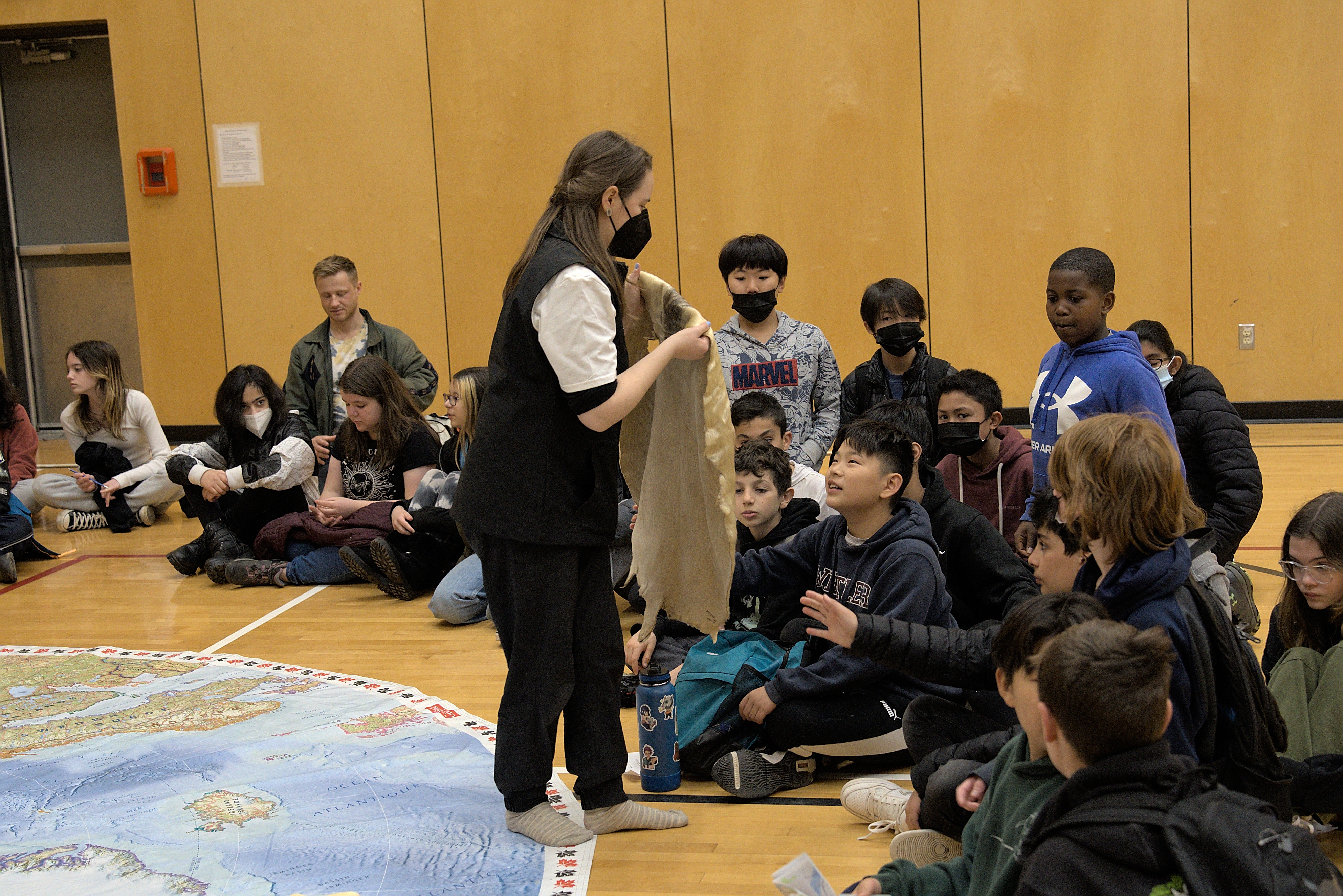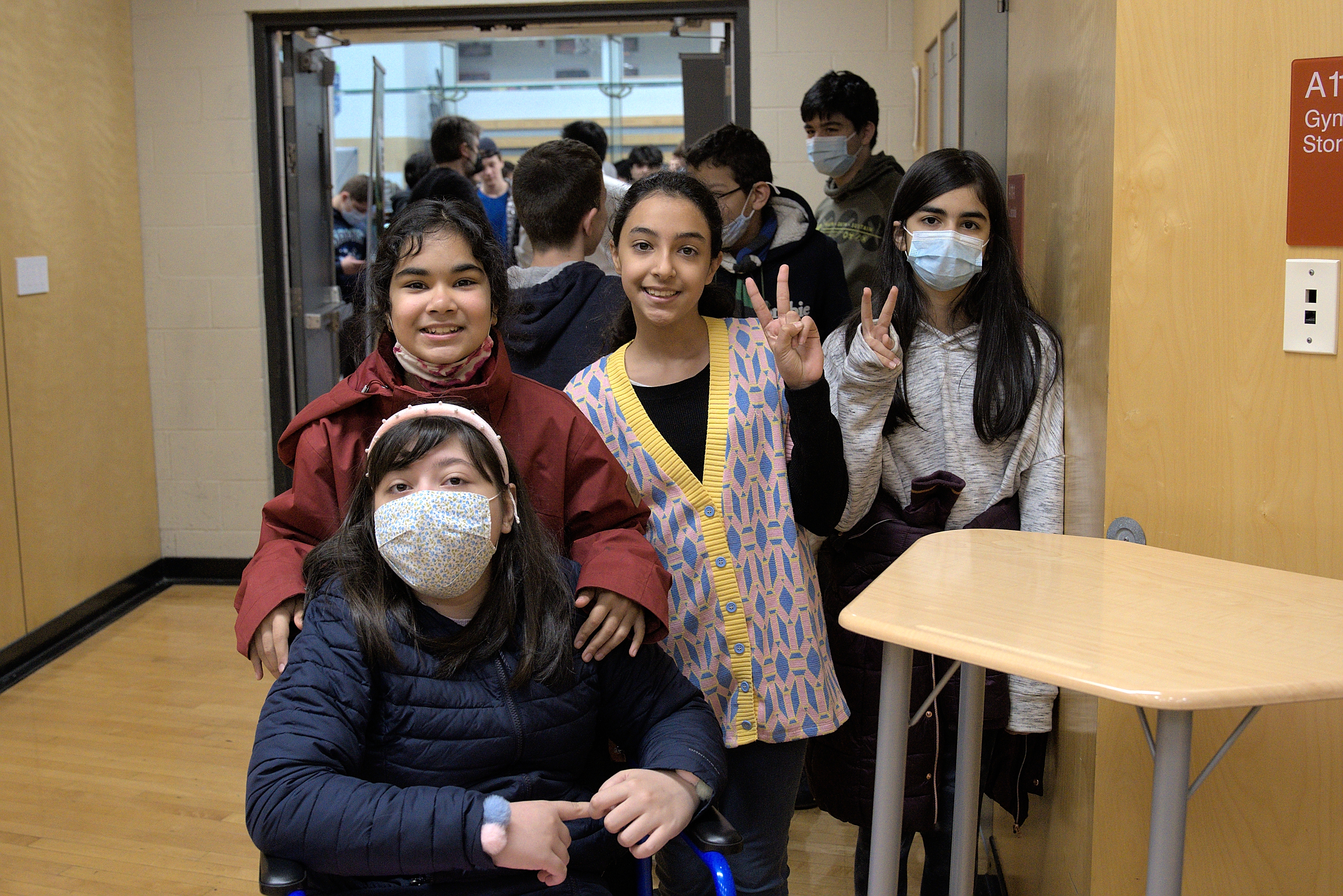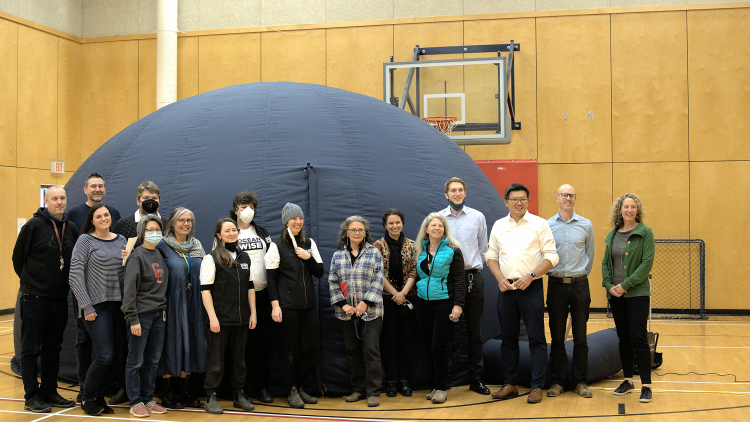The land we call Canada has the largest coastline in the world. Still, for the largest ecosystem on Earth, humans still know very little about the ocean. We only recently discovered that kelp sequesters up to 20 times more carbon than an organism of the same volume—though its ability to store carbon long-term is totally dependent on its ability to become absorbed into the sea floor. Still, this relatively recent discovery is a game-changer for the blue economy (i.e. the sustainable use of ocean resources for economic growth). At a time when climate change is the largest threat to ocean health, we have a particular responsibility to learn and act on behalf of our oceans. Ocean education is now more important than ever.

This is where Waves of Change comes in. A partnership between Ocean Wise, GreenLearning, and TakingITGlobal, Waves of Change “blends in-person events, digital engagement, and educational resources for Canadian youth K-12, to highlight the important connections between climate change and ocean health, and the daily actions Canadians can take to reduce greenhouse gas emissions.” The program launched at the North Vancouver School District’s Climate and Sustainability Week’s Be Aware fair on April 13th. Hosted at the Carson Graham Secondary School, Ocean Wise’s Sea Dome welcomed its first curious learners to its planetarium-esque ocean education experience! We were fortunate to spend the day making connections with educators, learners and other organizations—and of course the 516 folks who came through the dome. MLAs Bowinn Ma (Lonsdale) and Susie Chant (Seymour) also stopped by to show their support!

In addition to the in-person component, GreenLearning has created fantastic free online resources and programming that tackles collective climate action for our oceans. A part of our Spiral Inquiry model, our Ocean Policy Resource tackles what ocean policy is and its overall objectives, as well as the importance of international and national ocean governance, and its role in conservation. Ocean policy is vital to conservation efforts in what we call Canada for many reasons—the least of them being the land’s large coastline. Thus, this resource focuses specifically on Canadian ocean policy after a primer on international governance.
Our other resource builds on the basic understanding of climate policy to introduce and break down the concept of the blue economy. This lesson begins with a more general understanding of the concept before asking learners to apply their knowledge to a Canadian context. What blue economic systems are already in place on this land? How would you implement a blue economic model from coast to coast? These are the kinds of questions students are asked to consider throughout the lesson. The Ripple Effect program is live, free and is best suited for learners in grades 9-12. We’re privileged to work alongside Ocean Wise and TakingITGlobal to further ocean climate action through this project, and we hope you’ll join us!
Topics: Ocean Education, Waves of Change, Environment, Ocean, Launch
Back to Blog

